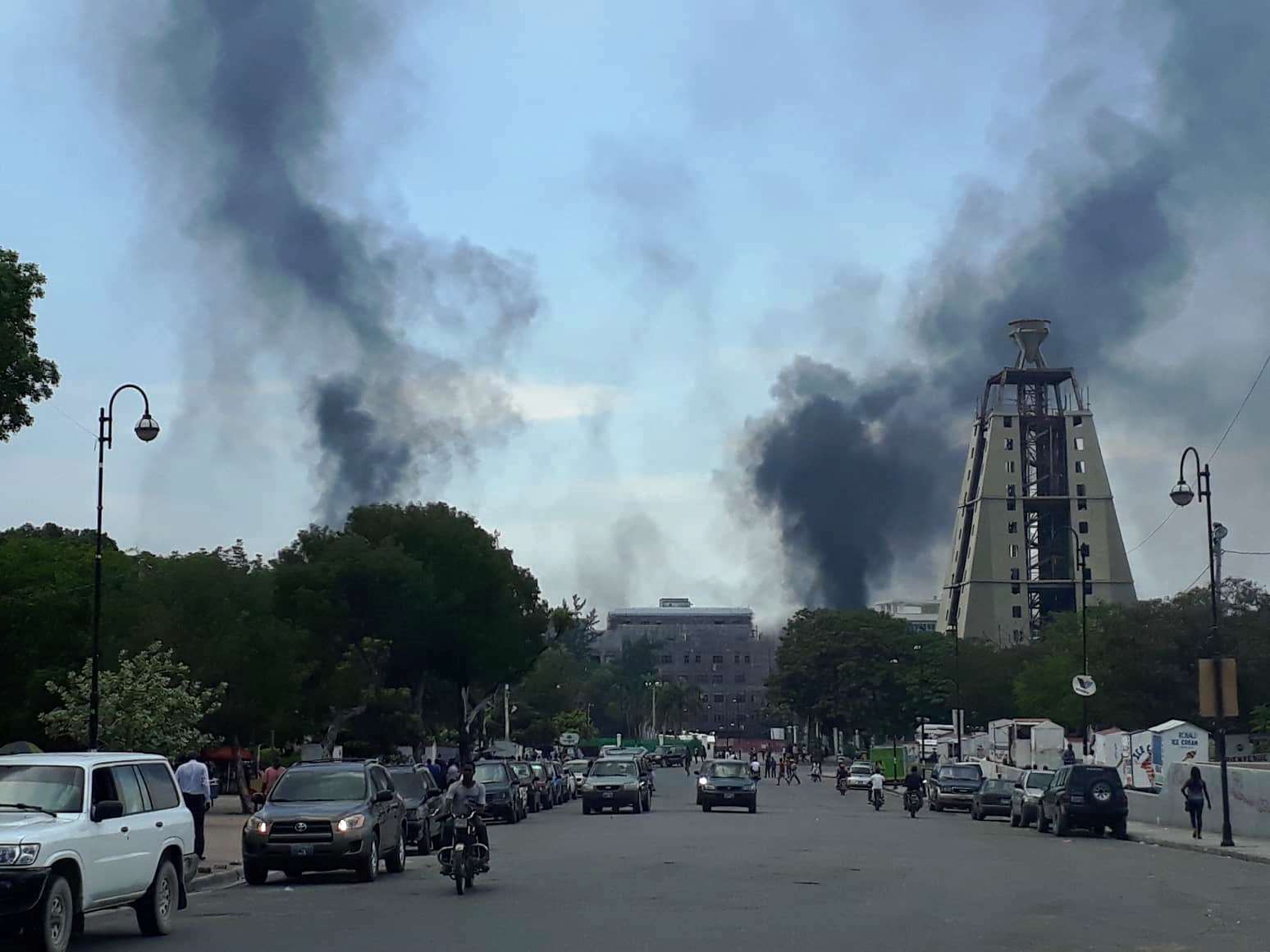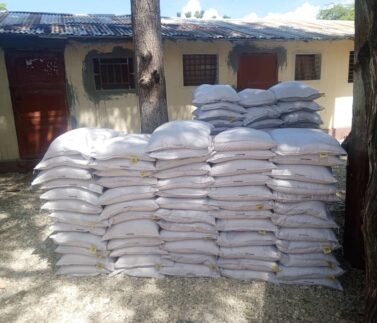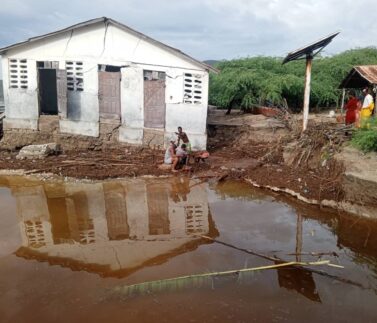
Haiti has two presidents, and demonstrations continue
Haiti – Haiti is experiencing an unusual situation, it has two presidents. The opposition took advantage of loopholes in the law to name its leader and Supreme Court judge, Joseph Mécène Jean-Louise, as the country’s interim leader. The current president, Jovenel Moïse, rejects the opposition’s position and considers Jean-Louise to be a traitor. Conflicts of interest also accompany protests and violent and armed demonstrations across Haiti. The school in Gonaïves, with which the Archdiocesan Caritas Olomouc cooperates, has temporarily suspended its operations for safety reasons, but this is only a preventive measure.
Daily street fighting, demonstrations and armed protests are taking place not only in Haiti’s capital, Port-au-Prince, but also in other parts of the country. An exception are not even the city of Gonaïves, in which the Center St. Joseph, which is supported by the Archdiocesan Caritas Olomouc. Although the centre’s premises are not directly affected by the ongoing protests and demonstrations, for preventive reasons, the center was temporarily closed and the on-site training was interrupted. “The children who come to us come from different parts of the city. However, moving around the city is very dangerous now, so we decided to temporarily suspend teaching until the situation calms down a bit,” explains Margaret Michael, headmaster of the St. Joseph center.
The reason for the conflicts is the current stalemate accompanying the “exchange” of presidents in Haiti. Former haitian president Jovenel Moïse took office in 2017. However, he was heavily criticized during his government, mainly for corruption or the violent repression of protests by Haitian citizens. But how could it happen that two men came to the head of the state at the same time?
The thorny path of Moïse leading to the role of leader of the country
The election of president Moïs as head of state was accompanied by a great deal of controversy. The country’s presidential election took place in October 2015. At that time, Moïse won his first candidate in the first round of elections. However, the post-election poll showed that Moïse received a very low number of votes and many observers called the results affected. This fact raised a wave of resentment and thousands of residents took to the streets in violent protests. Four months after the election, the term of office of incumbent president Mertelly ended in February 2016, and in order to keep Haiti without a leader, Haitian politician and tax expert Jocelerme Privert was appointed interim head of state at the beginning of the year.
It is November 2016, Jocelerme Privert is the interim president, and more elections are being held in Haiti. It has been nine months since the last government-duly elected leader of the country, Martella, left office. The situation from the previous year is already closed and Moïse is running in the last round of the presidential election. Like the previous year, this year he receives the largest number of votes, officially becoming the Haitian president. However, he will not take the oath until February 2017.
Two presidents: Mertelly’s resignation as an opportunity for the opposition
Former haiti president Michel Martelly resigned as head of state after a standard five-year term on February 7, 2016. A year later, in February 2017, Jovenel Moïse became president.
Now, in 2021, cities across Haiti are once again full of protesters, with Moïse recalling three Supreme Court judges in early February. On the same day, armed demonstrations and a demand to dismiss president Moïs resonate in the capital. A day later, the Haitian opposition claims that Mr Moïs’ five-year term should end on February 7, 2021, five years after the resignation of his predecessor, Michel Martelly. They not only want his resignation, but also directly elects the country’s new leader, Joseph Mécène Jean-Louise. Moïse rejects the position of the opposition and refers to the fact that he took the oath when he took office only on February 7, 2017. According to the law, according to the law, he should leave office after five years, ie in February 2022.
Unclear developments in the future
Due to a loophole in the law, both presidents are still legally in office. However, as many times in the country’s history, the development of current events in Haiti in the future is unclear. The current situation and relations between Moïs and the opposition are not sustainable in the long run. “We, the staff of the Archdiocesan Caritas Olomouc, are in our thoughts with our Haitian partners and we hope that the situation will be resolved quickly and, if possible, as calmly as possible. Center St. Joseph had to be shut down preventively due to the conflicts, and we hope that our other two friendly centers in Baie-de-Henne and Roche-au-Bateaux will not have to do so,” said Lada Matyášová, a project coordinator in Haiti.
Kateřina Biolková, Archdiocesan Caritas Olomouc



